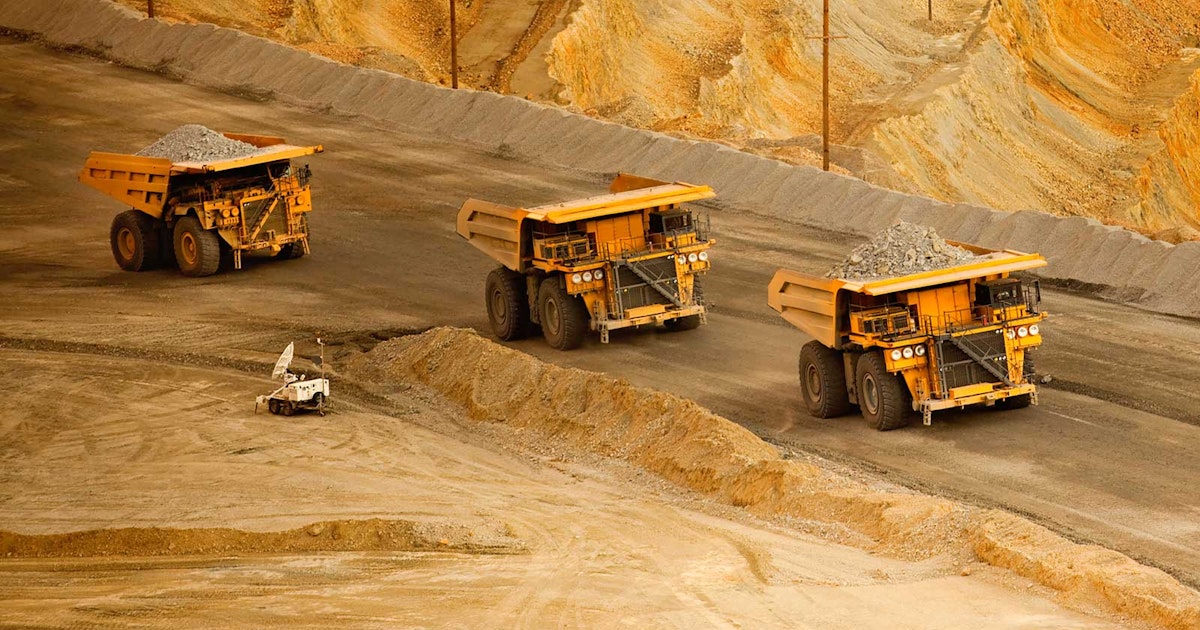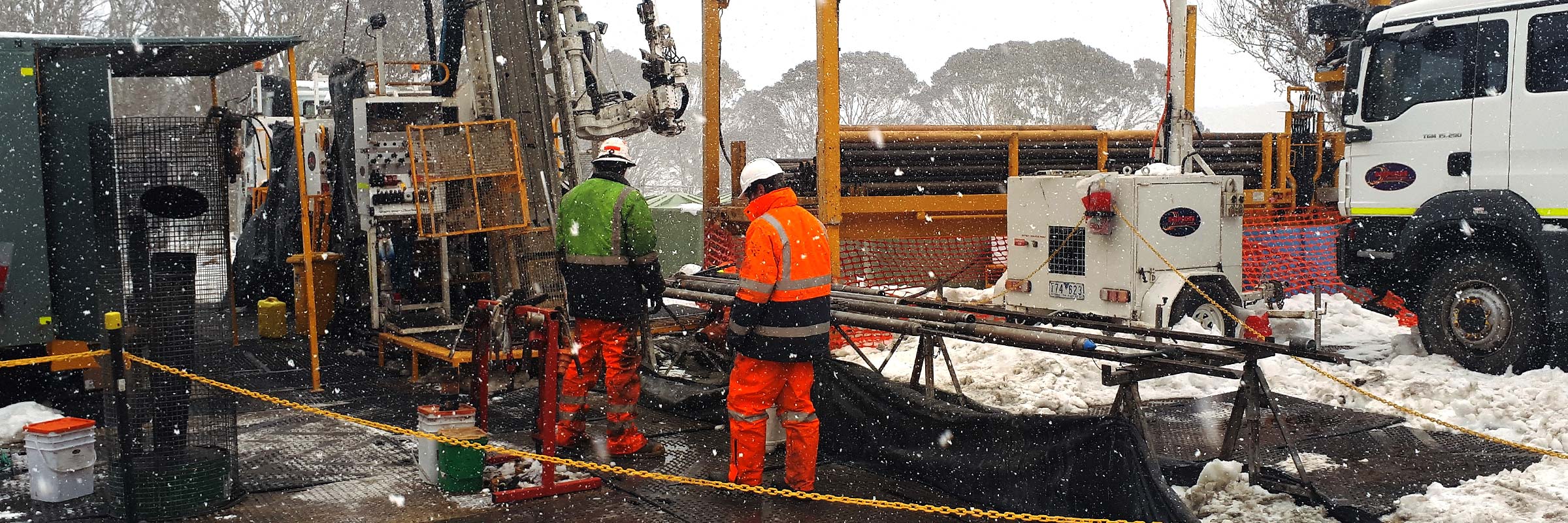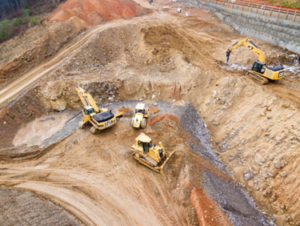Why All About Geotechnical Engineering Matters in Today's Facilities Development
Why All About Geotechnical Engineering Matters in Today's Facilities Development
Blog Article
The Importance of Geotechnical Engineering in Attending To Ecological Difficulties and Enhancing Building And Construction Safety And Security
Geotechnical engineering offers as a cornerstone in the junction of ecological stewardship and building safety and security, supplying important insights right into the behavior of dirt and rock under numerous conditions. By applying calculated website investigations and customized mitigation actions, geotechnical engineers play a crucial role in securing both human lives and ecological honesty.

Function of Geotechnical Engineering
Geotechnical design plays an important duty in the layout and construction of infrastructure by addressing the actions of soil and rock products under different conditions. This field of engineering is necessary for understanding the interaction in between structures and the ground, that includes determining the load-bearing capacity of soil, evaluating security, and forecasting possible negotiation or failure.
Geotechnical designers are accountable for performing site investigations, which involve tasting and screening soil and rock to collect data on their chemical and physical homes. This details is important for making foundations, maintaining walls, and various other earth-retaining frameworks that make sure safety and longevity. Geotechnical engineering notifies the option of suitable construction approaches and materials, therefore reducing threats associated with dirt behavior.
Moreover, the combination of geotechnical design concepts into metropolitan planning and ecological monitoring is important for addressing difficulties such as ground contamination and groundwater management. By recognizing geotechnical aspects, engineers can develop lasting solutions that improve the durability of infrastructure versus all-natural risks, while likewise promoting ecological stewardship. Inevitably, the role of geotechnical engineering is vital for achieving secure, durable, and ecologically mindful building and construction practices.
Soil Erosion Reduction
Soil disintegration presents a substantial danger to both environmental stability and facilities stability, impacting about 24 billion heaps of productive soil shed annually worldwide. This sensation is aggravated by elements such as logging, urbanization, and bad agricultural practices. Geotechnical design plays an essential function in creating reliable dirt erosion mitigation approaches that secure both the environment and construction jobs.
One approach entails the execution of disintegration control methods such as plant life growing, which supports dirt via root systems. Additionally, the building and construction of keeping balconies and walls can properly minimize surface drainage and protect prone areas from disintegration. Appropriate water drainage layout is additionally critical; it decreases water accumulation and directs excess runoff far from critical frameworks.
Furthermore, geotechnical designers use dirt stablizing methods, such as the application of geotextiles and naturally degradable mats, to improve dirt communication and avoid destruction - about geotechnical engineering. Normal tracking and analysis of erosion-prone sites make it possible for prompt treatments, making certain lasting sustainability. By incorporating these techniques, geotechnical engineering not only alleviates the influences of dirt erosion yet additionally adds to the strength of facilities against ecological obstacles, ultimately cultivating a more secure and much more sustainable constructed environment
Groundwater Defense Strategies
Groundwater offers as an important source for drinking water, farming, and commercial procedures, making its defense vital for ecological sustainability and public health and wellness. Reliable groundwater defense methods are critical in reducing contamination threats and making sure the durability of this resource.

Regular surveillance of groundwater top quality is also necessary, allowing very early detection of contamination sources and helping with timely removal efforts. Using sophisticated innovations, such as geophysical studies and remote noticing, help in determining potential hazards to groundwater gets.
In addition, public education and stakeholder interaction are vital, cultivating check my blog neighborhood assistance for groundwater protection efforts. geotechnical companies in south africa. By integrating regulatory steps, technical developments, and neighborhood participation, we can create a detailed structure that safeguards groundwater resources while promoting lasting growth and construction practices
Landslide Threat Monitoring
Landslides position considerable hazards to both human safety and infrastructure, making efficient threat monitoring methods important. Geotechnical engineering plays a crucial function in determining, analyzing, and mitigating landslide risks. A detailed understanding of incline security, soil auto mechanics, and hydrology is vital for establishing reliable threat management plans.
The very first step in landslide risk administration entails extensive site investigations, which consist of geological mapping and soil testing. These investigations assist designers review the capacity for landslides by recognizing critical factors such as slope angles, dirt make-up, and water web content. Making use of innovative modern technologies such as remote noticing and geophysical studies can improve the accuracy of these assessments.
Once risks are identified, appropriate reduction measures can be applied. These might consist of design options such as maintaining wall surfaces, drain systems, and slope stabilization techniques. Additionally, checking systems need to be established to identify signs of ground movement and changes in water levels, enabling positive interventions.

Enhancing Building Security
Building websites commonly offer a myriad of threats that can jeopardize worker security and project honesty. Geotechnical design plays an important duty in enhancing building security by offering necessary understandings right into subsurface problems. Via thorough dirt and rock analysis, geotechnical engineers can identify possible dangers, such as soil instability, groundwater issues, and seismic susceptabilities, which might compromise the safety of construction tasks.
Executing geotechnical remedies, such as appropriate structure design and the usage of retaining structures, minimizes these risks dramatically. These services not just make certain the stability of the frameworks being built but likewise produce a more secure working atmosphere for building and construction employees.
Furthermore, promoting a society of safety and security with training and adherence to developed safety and security methods further enhances construction site safety. By integrating geotechnical competence into the preparation and execution stages, building projects can accomplish greater safety and security standards, ultimately protecting workers and ensuring effective task conclusion.
Final Thought
In final thought, geotechnical engineering offers as a vital discipline in taking on environmental challenges and promoting building security. Through effective dirt disintegration reduction, groundwater security techniques, and landslide risk management, geotechnical designers add to the development of resistant facilities.
Geotechnical design offers as a foundation in the intersection of ecological stewardship and building security, giving vital understandings additional hints into the habits of dirt and rock under various conditions. Geotechnical design informs the choice of ideal construction techniques and products, thereby reducing dangers linked with soil behavior.
Geotechnical engineering plays an essential role in establishing reliable dirt erosion mitigation methods that guard both the environment and building jobs.
In addition, geotechnical designers employ soil stablizing strategies, such as the application of geotextiles and biodegradable mats, to improve dirt communication and protect against degradation. Through detailed dirt and rock evaluation, geotechnical designers can recognize possible risks, such as dirt instability, groundwater issues, and seismic vulnerabilities, which may jeopardize the security of building and construction tasks.
Report this page